Welcome to one of the most active flamenco sites on the Internet. Guests can read most posts but if you want to participate click here to register.
This site is dedicated to the memory of Paco de Lucía, Ron Mitchell, Guy Williams, Linda Elvira, Philip John Lee, Craig Eros, Ben Woods, David Serva and Tom Blackshear who went ahead of us.
We receive 12,200 visitors a month from 200 countries and 1.7 million page impressions a year. To advertise on this site please contact us.
|

|
|
How do you feel rhythm?
|
You are logged in as Guest
|
|
Users viewing this topic: none
|
|
Login  | |
|

   
Miguel de Maria
Posts: 3532
Joined: Oct. 20 2003
From: Phoenix, AZ

|
 RE: How do you feel rhythm? (in reply to Miguel de Maria) RE: How do you feel rhythm? (in reply to Miguel de Maria)
|
|
|
This is all good. I am talking about rhythm in general, though, not in internalizing the characteristics of a particular form or dance, such as bulerias. Ricardo talked about how rhythm is really the essential part of all good music. At first, I thought he was wrong, but then I started to think that really excellent music, whether bulerias or Bach, whether 200 bpm or Lento, has that perfect pulse. That pulse that runs under and through the melody. As Ron pointed out, even the cante jondo, supposedly "libre" relies upon an instinctive and profound understanding of rhythm. A good rock band, which plays 3 chords, is tight. That tightness and rhythmic precision is the overarching element that makes it good, just like someone can play 2 chords of bulerias and it can be awesome.
Most people think that rumbas are an easy type of music to play, but I question that. I have been learning some of the GK instrumental songs, and it's not particularly easy to always understand exactly what is going on. I think it requires the same intensive study as any other palo. Probably the lack of rhythmic sophistication is the reason North American rumba players don't sound right, although all of the other elements are there. For example, a lot of people say rumba is 4/4, but to me the pulse is clearly cut time, 2/2. Just like people say bulerias is a 12 count form, but to me that's horribly misleading. Sometimes it sounds like like two triplets, sometimes it sounds like 6 beats, sometimes it sounds like basically teh six beats but with a syncopation in the first half.
On yet another note, I have been practicing singing the Beny More (Cuban) song Yiri Yiri Bon. I was singing along with Eliades Ochoa on the Cd, and although I could intuitively match him note for note, he comes in one part after I would. I haven't really figured out why, but there is a reason. It sounds right when he does it, and it doesn't sound right when I do it.
I guess I have diverged from the topic slightly. But I do wonder, why is that some people can seem to really manifest and exhibit a true pulse, and other people can only do a pale imitation? Tom Whiteley said when you have the "feel" of rhythm, you don't need a metronome. The things I have discovered regarding guitar technique and singing are pointing me to this direction. You don't have to build a lot of things; there are a lot of things that you can already do, and you just have to get in touch with them. But how do you do that? One thing, I don't think this is readily achieved through conventional means.
|
|
|
|
REPORT THIS POST AS INAPPROPRIATE |
Date Jun. 27 2005 20:31:42
 |
|

   
Ron.M
Posts: 7051
Joined: Jul. 7 2003
From: Scotland

|
 RE: How do you feel rhythm? (in reply to Miguel de Maria) RE: How do you feel rhythm? (in reply to Miguel de Maria)
|
|
|
quote:
But how do you do that? One thing, I don't think this is readily achieved through conventional means.
Personally, I try to view the music by trying to integrate it into what I would regard as decent lounge bar music that any folk singer or pop band would do.
That is, if I can't tap my foot to what I'm playing, in a fairly natural way..then I know there is something wrong with my understanding of it and it needs more work.
Like Ricardo said, even the general public, having no knowledge of Flamenco and compás, can sort of feel when something is tight and when it's not.
Flamenco is an enjoyment, fun and relaxation for the Flamenco Andalucians, not a boring and complicated technical exercise.
Remember...this is just theoretical...I can't easily put in ito practice, although I think this view is steadily proving fruitful in my own playing.
cheers
Ron
|
|
|
|
REPORT THIS POST AS INAPPROPRIATE |
Date Jun. 27 2005 21:15:06
 |
|
Guest

|
 RE: How do you feel rhythm? (in reply to Ron.M) RE: How do you feel rhythm? (in reply to Ron.M)
|
|
|
The other day I was with a guitarist and singer who were rehearsing soleá de Cádiz for a show. She was very unhappy about his playing: it was perfectly in compas and tone, so he was baffled. She asked my opinion and I said I thought the accompaniment had an aire de Alcalá rather than Cádiz. She said "Of course, that´s it!". The guitarist was still none the wiser. We repaired to my flat where I put on every recording of soleá de Cádiz I have. The difference in aire is very clear: it is a kind of slow gallop (within the structure of soleá compás) and the guitarist who represents it best is Felix de Utréra. The guitarist learned in in 2 secs and she was happy.
If such subtle differences can be so important, them rhythm must be of fundamental importance. I read once that a famous classical composer said that aire is simply a product of syncopation. This sounds a bit crude, but the more I think about it, the more sense it makes.
Sean
|
|
|
|
REPORT THIS POST AS INAPPROPRIATE |
Date Jun. 27 2005 21:48:35
 |
|

   
Miguel de Maria
Posts: 3532
Joined: Oct. 20 2003
From: Phoenix, AZ

|
 RE: How do you feel rhythm? (in reply to Miguel de Maria) RE: How do you feel rhythm? (in reply to Miguel de Maria)
|
|
|
Ryan,
your theory makes sense--also, think of the Northern European classical music tradition, whose proponents are not really known for their sense of rhythm or grooviness. The musical traditions with a strong percussion, such as many African forms with their drums, Cuban, and even flamenco, which uses the palmas as its percussion "instrument" are certainly the home of great rhythmic skill and development. If Asian traditions encourage the development of melody, the Northern European was a hotbed for harmony.
However, I'm not sure that portability infers a rhythmic quality, because guitars, flutes, harmonicas, ocarinas, etc., are all portable but have no particular bias toward rhythm. For example, if you know many classical guitarists you will note that their instruments are nearly as portable as ours, yet they are not noted for their rhythmic skills. Nor would the converse--for pianists are noted for their lack of rhythm nearly as much as guitarists.
Probably two factors bias toward rhythm--ensemble and percussion, particularly when in combination. You might add dance in as a third element. The presence of a beat is a "rule" that everyone can follow in order to play in an orderly way.
|
|
|
|
REPORT THIS POST AS INAPPROPRIATE |
Date Oct. 19 2005 16:37:56
 |
|
 New Messages New Messages |
 No New Messages No New Messages |
 Hot Topic w/ New Messages Hot Topic w/ New Messages |
 Hot Topic w/o New Messages Hot Topic w/o New Messages |
 Locked w/ New Messages Locked w/ New Messages |
 Locked w/o New Messages Locked w/o New Messages |
|
 Post New Thread
Post New Thread
 Reply to Message
Reply to Message
 Post New Poll
Post New Poll
 Submit Vote
Submit Vote
 Delete My Own Post
Delete My Own Post
 Delete My Own Thread
Delete My Own Thread
 Rate Posts
Rate Posts
|
|
|
Forum Software powered by ASP Playground Advanced Edition 2.0.5
Copyright © 2000 - 2003 ASPPlayground.NET |
0.09375 secs.
|


 Printable Version
Printable Version





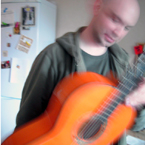


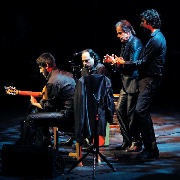
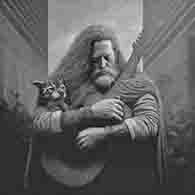

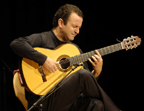
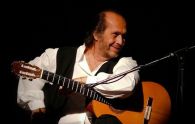


 New Messages
New Messages No New Messages
No New Messages Hot Topic w/ New Messages
Hot Topic w/ New Messages Hot Topic w/o New Messages
Hot Topic w/o New Messages Locked w/ New Messages
Locked w/ New Messages Locked w/o New Messages
Locked w/o New Messages Post New Thread
Post New Thread